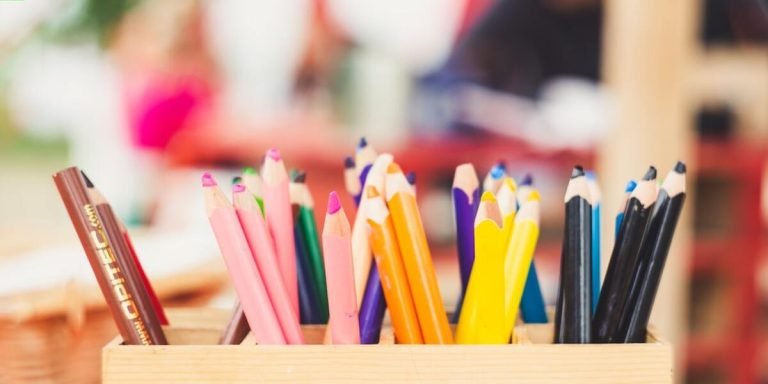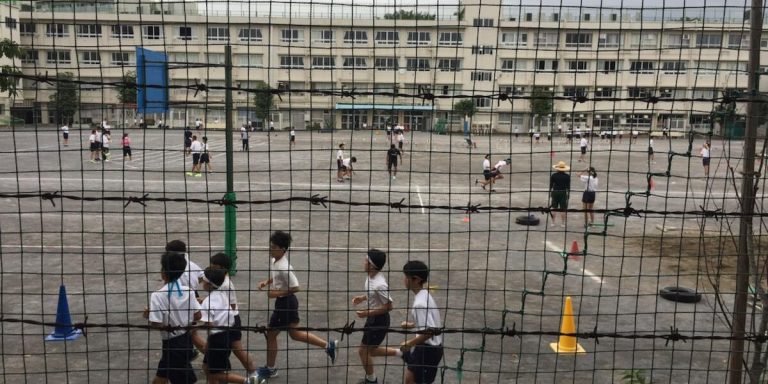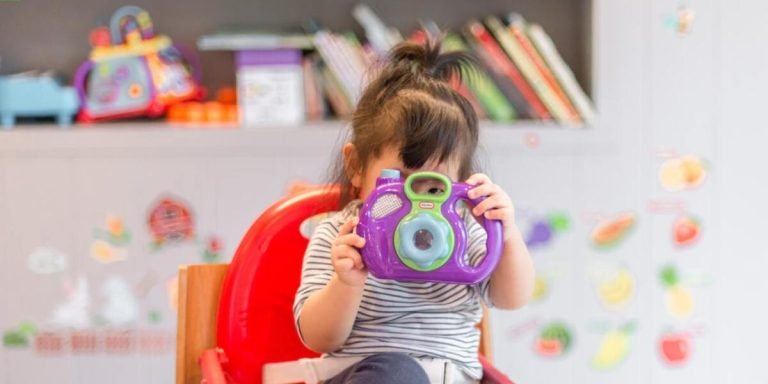Play in Schools: The Impact on Childhood Learning and Development
Understanding the role of ‘play in schools’ is a critical aspect of comprehending childhood learning and development. No longer viewed as frivolous or time-wasting, play has taken center stage in shaping cognitive abilities, improving social skills, and nurturing creativity among children.
The concept of activity-based learning takes this principle ahead by integrating learnings within playful activities to ensure knowledge retention while keeping it fun for kids. The amalgamation creates an environment that allows holistic growth – physical, intellectual and emotional – setting up the foundational ground for future success prospects.
Did you know?
Did you know that according to the American Academy of Pediatrics, play contributes significantly towards children’s cognitive development and skills like problem-solving? This pivotal role makes it a critical aspect of education in early childhood.
Exploring the Role of Play in Enhancing Activity-Based Learning
The concept of play in schools has significantly evolved over the years, especially with recent advancements in technology. Unlike the traditional norm where ‘play’ was often confined to physical activities during break times, it is now being integrated into classroom spaces and academic curricula as a cognitive strategy for activity-based learning.
Interactive games that simulate real-world situations or scientific phenomena have been seen to stimulate interest among children much more than conventional textbook explanations can do. Solving puzzles online promotes logical reasoning; coding games introduce them to computational thinking; virtual reality excursions make geography lessons far more immersive – these examples go on proving how beautifully play could be woven within everyday school education enhancing not just activity-based learning but holistic development.
Hence exploring the role of ‘play’, particularly in its modern technological guise, becomes pivotal – both from academic as well as child developmental perspectives.
making way for smarter future generations ahead!
Implementing Structured Play to Facilitate Educational Outcomes
In today’s digital age, progressive educators understand the importance of integrating technology in fostering activity-based learning. It’s equally crucial to recognize that play is not merely a leisurely pursuit but can be an instrumental tool in shaping children’s education journey.
The concept of implementing structured play into schools has gained momentum recently, primarily due to its potential for enhancing educational outcomes. Essentially, it brings together two critical elements – ‘play’ and ‘education’, leveraging their symbiotic relationship to bring about tangible results in young learners’ lives.
Firstly, let’s consider how incorporating play within the school environment stimulates engagement with lessons. When children feel engaged and excited by activities they participate in; they’re more likely to learn effectively from them rather than passive traditional teaching methods —the role of “play” becomes even more pronounced here!
By embracing technology-driven tools like interactive games or apps designed specifically for education purposes (EdTech), we’re paving a path towards fostering enthusiasm among students while combining academic concepts with fun & engaging undertones. The integration allows kids’ natural curiosity and tech-savvy nature as avenues assisting deeper absorption of subjects being taught—thus advancing active learning through playful experiences!
Leveraging Unstructured Play for Cognitive and Social Development
Unstructured play, often overlooked in conventional education methods, plays an enormous role in the cognitive and social development of children. Today’s progressive schools are leveraging this knowledge to create a balanced curriculum that invigorates activity-based learning through technology integration.
The concept of unstructured play refers to spontaneous and freely chosen activities by kids- it’s when they’re left on their own with toys or natural elements without any predefined rules or directions. This kind of child-led play has been shown to have vast benefits for both young minds’ mental growth and their interaction skills.
One major benefit is fostering creative thinking which is essential in today’s rapidly evolving technological world. Unstructured play sparks imaginative thinking as children make up games, build imaginary worlds, solve problems creatively – all crucial components contributing towards developing innovative mindsets needed for tomorrow’s digital citizens.
Next comes social skill enhancement; when playing together without adult interference, kids learn vital communication tactics. They negotiate roles, manage conflicts skin-deep understanding cultural diversity—invaluable life-skills that go beyond textbook-learning experiences offered at school.
Integrating technology into such playful environments can amplify these benefits multifolded manner while keeping pace with 2023 modern educational approaches.Technology resources like virtual reality tools can be used allowing students understand complex concepts via immersive simulations creating playgrounds within classrooms!
Integrating Activity-Based Learning with Curriculum Goals
Activity-based learning, often facilitated through play in schools, refers to an engaging and interactive approach where students ‘learn by doing’. This type of “hands-on” methodology promotes active participation, encourages critical thinking skills and enhances knowledge retention considerably more than traditional lecture-style teaching methods.
In integrating this pedagogical approach with curriculum objectives within classrooms today’s digital age context is introducing children to real-world applications of their lessons using tech utilities — from simple coding exercises to complex STEM experiments conducted virtually. A balance between conventional classroom routines and engaging practical tasks aids learners develop holistic comprehension about various subjects while also boosting their cognitive capabilities.
The potent fusion of these two aspects requires strategic implementation so as not disrupt established educational structures or routine school operations abruptly; instead aim at creating gradual yet impactful transformations seamlessly merging state-of-the-art edtech solutions along side regular scholastic programs imparted effectively leading better learner outcomes eventually shaping future-ready citizens adeptly navigating dynamic world scenarios competently .
Designing School Programs that Embrace Kinesthetic Learning
Activity-Based Learning (ABL) is a trending teaching method in 2023 that emphasizes the importance of ‘Play’ within the school curriculum. It’s like capturing fun and integrating it with learning. When designing school programs, educators must consider how to seamlessly incorporate elements of this kinesthetic approach into their lesson plans to fully embrace its benefits.
Firstly, teachers need to identify cross-curricular connections where they can bring play into lessons without undermining established objectives or expectations. For instance; in math class children could build geometric structures using legos – engaging not only mind but also hands-on experience which reinforces retention through action.
Exploring new technologies offering interactive experiences should be considered as well while incorporating ABL methods for enhanced results. Many cutting-edge tools have designs focusing on enhancing user engagement and imparting knowledge simultaneously- perfect combination promoting ABL effectively!
Next, students learn best when strategies are tailored according to individual needs & preferences thus understanding child’s capability becomes crucial factor here so task difficulty level matches their abilities assuring effective learning process continues uninterrupted along with playful mood creating positive environment contributing drastically towards overall growth and development.
Assessing Academic Achievement Through Play-Centric Approaches
In this day and age, the integration of activity-based learning with curriculum goals holds significant potential to enhance children’s education. As such, assessing academic achievement through play-centric approaches has become a crucial aspect in schools.
Schools nowadays are shifting from traditional pedagogies to more interactive ways of teaching where activities form the core part of their lessons. This shift necessitates developing assessment techniques that capture skill improvement derived through play-infused methodologies.
Assessments shouldn’t be limited solely to measuring information retention; they should rightfully encompass an evaluation on how well students assimilate concepts while engaging with hands-on experiences or ‘play’. In other words, it’s about gauging knowledge application over mere rote-learning capabilities.
There are various tools available today which allow educators monitor progress made by incorporating ‘play’ as part of lesson plans. Some examples include student portfolio systems wherein teachers can document individual achievements throughout the year featuring projects completed via game based tasks apart from regular assignments & tests results.
Educators might use digital platforms for conducting such assessments too – there exist numerous Apps designed specifically providing insightful feedback regarding combined performance across standard curriculum activities along new age fun-filled educational tasks.
The Impact of Physical Play on Emotional and Behavioral Growth in Schools
Encouraging physical play in schools forms an integral part of technology integration in education. It is not only a crucial aspect for children’s overall fitness but also significantly impacts their emotional and behavioral growth. In this era, 2023, where digital learning takes the front seat with most early childhood educational frameworks integrating modern technologies into their curriculums, the importance of physical activity cannot be overstated.
Recognizing that learning extends beyond intellectual knowledge to include social skills such as cooperation and empathy becoming increasingly apparent. Physical play like sports or games promotes these interpersonal skills while allowing students to unwind from screen time, enabling them to refocus on academic tasks afterwards more effectively.
Furthermore, Activity-Based Learning (ABL), which emphasizes direct experience instead of just theoretical instruction has seen positive results when it comes to shaping better classroom behavior among pupils. Active participation leads youngsters toward self-directed exploration that plays an essential role in developing problem-solving abilities and fostering a heightened sense of curiosity—skills imperative amidst rapid technological advancements happening around us today.
Fostering Emotional Intelligence through Group Activities and Games
Group activities and games are instrumental in fostering emotional intelligence among youngsters. When set within the framework of “play in schools,” these exercises serve as practical tools for children to navigate their feelings, engage with peers positively, and develop resilience.
In this technology-driven age, integrating digital elements into activity-based learning has proven beneficial. For instance, interactive online group tasks encourage students to collaborate better while developing their empathy skills virtually.
One cannot ignore the role that virtual reality (VR) plays in enhancing social-emotional learning (SEL). Through VR simulations like classroom scenarios or playground interactions when play is incorporated digitally in schools. Students can learn about various emotions: recognizing them and understanding how they affect behavior; valuable lessons often difficult to teach theoretically but seamlessly integrated via technological advancements.
Moreover, game-based platforms promote healthy competition and team-building through multiplayer games which requires cooperation amongst players increasing tolerance level thereby strengthening Emotional Quotient(EQ).
Addressing Classroom Behavior Issues with Active Engagement Strategies
Teachers worldwide have recognized the significant role of physical play in schools, especially when addressing classroom behavioral issues. It’s been observed that active engagement strategies incorporating playful activities can change how children respond emotionally and behaviorally within school settings.
1. **Promotes Positive Behavior:** Physical activity, including games and sports, contributes to developing positive behaviors among students. As a formative tool for teaching discipline, teamwork skills and fair game rules become inherent life lessons garnered from these experiences.
2. **Enhances Emotional Resilience:** Active play also influences emotional health positively by fostering resilience in stressful situations – an integral attribute necessary beyond just the classroom setting.
3. **Reduces Behavioral Problems**: Hands-on activities provide outlets for young energy reserves which otherwise might lead them astray or cause disruptions during academic sessions- thereby reducing overall behavioural problems significantly.
4. **Improves Concentration Levels**: Regular participation in physical activities helps improve students’ concentration levels as they learn not only through reading or listening but actually ‘doing’. This is often referred to as Activity Based Learning (ABL), where educators use real-world scenarios besides traditional methods conveying complex concepts effectively with better retention scope.
5.Technology Integration: Given our digital age marked by 2023 standards, integrating technology into such learning processes can further boost effectiveness though using virtual reality-driven experiential learning techniques enhancing ABL outcomes considerably; more so whilst upskilling kids technologically too!
Conclusion
In the grand scheme of educating our youngsters, the role of play in schools is no child’s game. It might seem all laughter and fun on surface but deep down it forges an environment that facilitates holistic learning and development – cognitive, social, emotional and physical – shaping a young mind into well-rounded individuals.
Explore more about nurturing your children or students on our platform; we provide comprehensive support to parents and educators alike. Establishing strong educational foundations require understanding various facets from academic assistance to mental health matters- information you will find plentifully here at your disposal! Dive deeper with us because every bit counts when contriving childhood education worth remembering!







